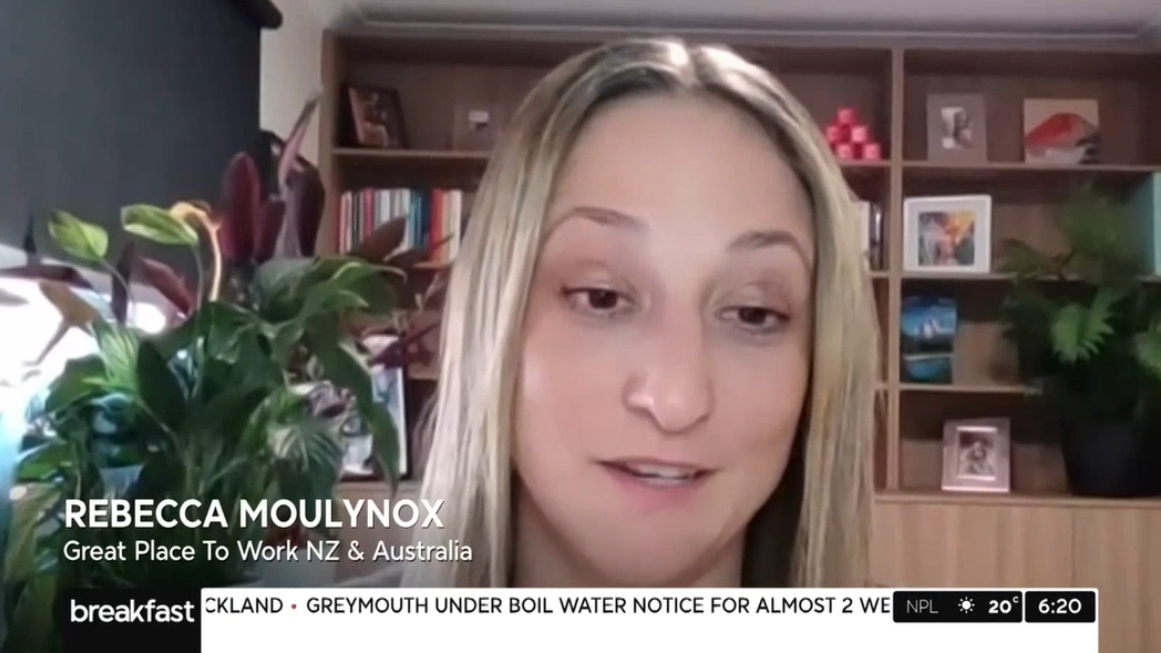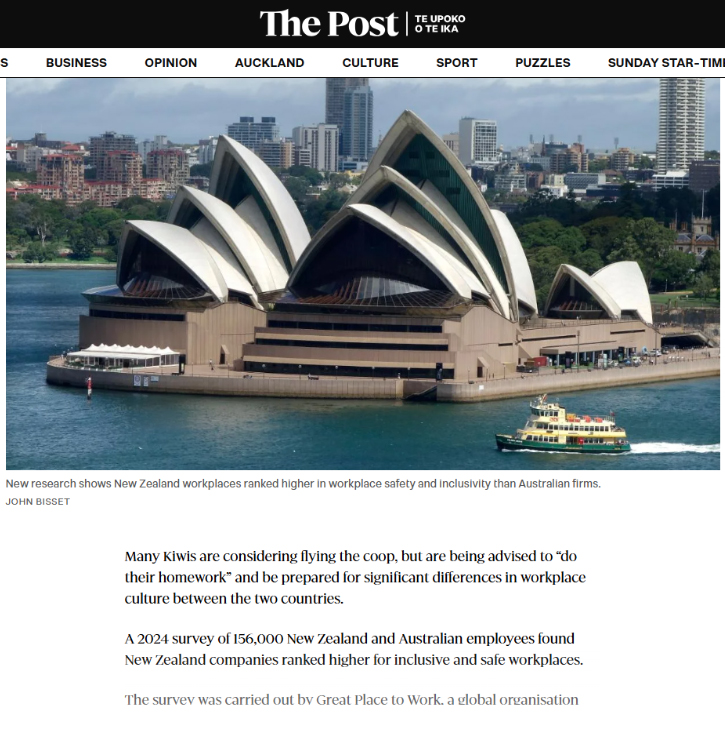Kiwis Advised to Research Work Culture Before Migrating to Australia – Study
With the promise of higher salaries, better weather, and a seemingly similar lifestyle, it’s no surprise that thousands of New Zealanders continue to consider migrating to Australia. But new research is prompting Kiwis to look deeper than income before committing to a job across the Tasman-particularly when it comes to workplace culture, safety, and long-term satisfaction.
A comprehensive trans-Tasman workplace study conducted by Great Place To Work, a leading global authority on workplace culture, has revealed noticeable differences in how employees in New Zealand and Australia experience their workplaces. The study, which analysed responses from more than 156,000 employees across both countries, suggests that New Zealand workplaces, on average, are more inclusive, fair, and secure than their Australian counterparts.

According to the research, only 73% of Australian employees working in typical firms believe their workplace is fair regardless of race, compared to 76% in New Zealand. The gap becomes more pronounced when examining other markers of inclusivity: just 67% of Australians feel their employers treat people equitably regardless of age, and only 74% say their workplace is inclusive for people of all sexual orientations.
When it comes to job security, the difference is even starker. Just 58% of Australian employees believe their company would use redundancies only as a last resort, and only 55% think people are paid fairly for their work. In contrast, Kiwi workplaces fared better across these indicators, showing a stronger overall commitment to fairness and stability.
Workplace safety was another area where Australian organisations lagged. Only 51% of Australian workers described their workplace as a psychologically and emotionally healthy place to work, and just 78% said they felt physically safe, compared to 81% in New Zealand.
Certification as a Cultural Indicator
The study also drew a clear line between certified and non-certified workplaces. The Great Place To Work certification, which reflects a company’s commitment to fostering positive workplace culture, proved to be a strong predictor of employee satisfaction. In Australia, certified workplaces performed 35% better than non-certified firms on key metrics such as fairness, inclusion, and employee wellbeing. In New Zealand, certified firms also outperformed their peers by 21% on average.
Rebecca Moulynox, General Manager for Great Place To Work New Zealand & Australia, says these differences underline the importance of understanding the workplace environment before accepting a new role, particularly when relocating to a new country.
“While financial incentives in Australia may seem attractive, workers must look beyond salary and consider workplace culture, inclusivity and long-term job security,” says Moulynox. “Money doesn’t compensate for feeling undervalued, unsafe, or excluded at work. You don’t want to go to a toxic work environment. The strain on your mental health, and on your family, is significant.”
She adds that while not all Australian workplaces are problematic, it’s crucial for jobseekers to actively research their potential employers.
“Certified organisations have made a conscious commitment to fairness, safety, and employee wellbeing,” she says. “Anyone who has worked for a company that genuinely invests in culture will instantly recognise the difference, it’s palpable.”
Moulynox encourages job candidates to look out for signs that an organisation supports inclusive and employee-first practices.
“Ask if they empower employee-led groups, if they encourage community involvement or continuous learning. These aren’t buzzwords-they’re signs of a living, breathing culture built on trust.”
Why This Research Matters Now
With a rising number of New Zealanders exploring career opportunities in Australia, especially in sectors facing domestic wage stagnation or skills mismatches, the findings arrive at a crucial time. For employers in both countries, the study serves as a wake-up call: culture is no longer a “nice-to-have”-it’s a deciding factor in attracting and retaining top talent.
For workers, especially those with families or those who have previously experienced toxic workplaces, the takeaway is simple: don’t compromise on culture. The risks, including stress, burnout and disengagement, can outweigh even the most appealing salary offer.
“When employees can’t be themselves at work, feel engaged, or trust their leaders, they’re not fully present,” says Moulynox. “They show up – but they’re not truly contributing. The best workplaces create the conditions where employees thrive, not just survive.”
In a competitive job market, particularly across international borders, salary is only part of the story. The culture within a company shapes everything from your mental wellbeing to your long-term career trajectory. As this research shows, not all workplaces are created equal-and for Kiwis considering a move to Australia, doing your homework could make all the difference.
If you’re thinking about making the leap, take a moment to look beyond the numbers. Ask the tough questions. And seek out employers who have already proven their commitment to building a great place to work.
Campaign Results: Making Workplace Culture a National Conversation
As part of a strategic media campaign led by Impact PR, the findings from this study were not only communicated clearly but also sparked a national conversation. The PR agency secured extensive coverage across a range of general news and business media, including:
- A feature on TVNZ Breakfast, bringing the story directly to morning viewers nationwide
- Articles in The Dominion Post, The Press, and the Waikato Times
- Radio interviews on Newstalk ZB, 95bFM and Mediaworks
- Syndication across regional and B2B publications, reaching key decision-makers in HR, management, and recruitment sectors

The media strategy was designed to elevate the research from an industry-specific report to a topic of national interest. The campaign successfully positioned Great Place To Work as a trusted voice in the employee experience space, reinforcing its role in helping organisations create better workplaces across Australasia.
The PR campaign also achieved a key objective: reframing how Kiwis think about international career moves, not just as a financial opportunity, but as a holistic life decision that hinges on workplace wellbeing.
If you have questions about public relations, contact us today. – we would love to help.
